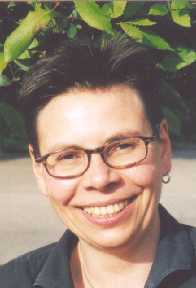
Wiebke Hoogklimmer, Contralto
|
6/25/2012 9:13:19 AM
CD "Kinderlieder Album1 - Children's songs Sing along CD
This CD belongs to my project www.volksliedsammlung.com.
The idea of recording German Volkslieder (Folk Songs) is closely connected with my mother`s Alzheimer’s disease.
My mother, born in 1928, was diagnosed with Alzheimer’s in 2000, and the illness progressed slowly in the beginning. For the past three years, however, her illness has been at an advanced stage, which means that she has stopped speaking, she cannot move on her own and she needs 24 hours help for everything.
About six years ago I noticed that my mother was losing her ability to speak. Even the speech therapist could only delay this but not stop it. This is when I started singing German Volkslieder with my mother. The exciting thing was that my mother, who was speaking less and less, suddenly said “beautiful” while I sang, or said other words which she had not used for a long time, or suddenly started singing the words along with me, even complicated phrases.
Enthused by this experience of being able to communicate with my mother beyond the spoken word I developed the idea of the project:
German Volkslieder
childhood – memory – emotions – age - identity
German Volkslieder as therapy for people suffering from dementia
I had the idea of recording the common German Volkslieder in the same fashion as I sing them to my mother - with my low voice, without instrumental accompaniment, with maximum clarity - to offer them as CDs and MP3 downloads, and to lay out the website www.volksliedsammlung.com with it. The thought behind it is that other relatives might find it easier to sing with their father or mother when they could sing along with a CD.
In addition, the acapella voice can be used by music therapists as singing karaoke and be accompanied with the guitar or other instrument, and people with dementia could play along using percussion etc. For this reason I purposely recorded most of the songs in C or G major.
Of course I also thought about children when singing the songs, because language development can be supported with singing folk songs!
At first I only wanted to record the two songbooks in large print which are commonly used in German nursing homes. However, as I only wanted to record songs that are free to use and not bound by copyright, I became interested in the authors of the songs, and was surprised to find the songbooks often only cited authorship as “traditional”, “old song” etc., although some writers or composers actually had not been dead for 70 years, which is the cut off year for paying royalties. So I did a lot of research which I had not planned originally.
On my website as well as here in the booklet you now find the lyrics of the songs with the correct author attributions. Among other sources, the research of the “ Deutsches Volks-liedarchiv” was a great help. You can look this up on their website: www.liederlexikon.de.
On top of that I worked at my desk with about 15 song books from the “Wandervogelzeit”, which covers the 1920s to today. To date I have about 340 songs in my collection, but it is my goal to expand the collection further.
If you have internet access, you can check out my website www.volksliedsammlung.com and find links to articles that prove scientifically the effect of music on people with dementia, also links to informative sites for relatives of people with Alzheimer’s disease, and a guest book for communication. Besides this, you can watch a video of myself and my mother singing!
Wiebke Hoogklimmer
|

|